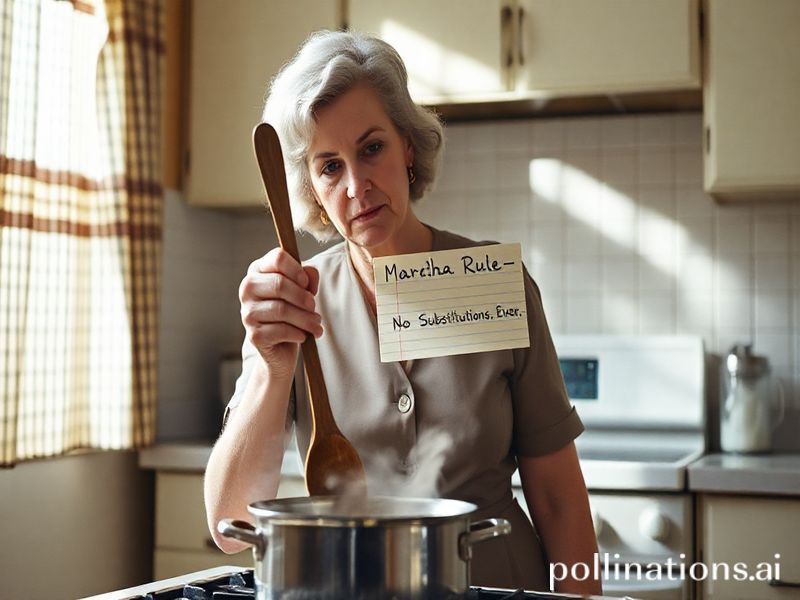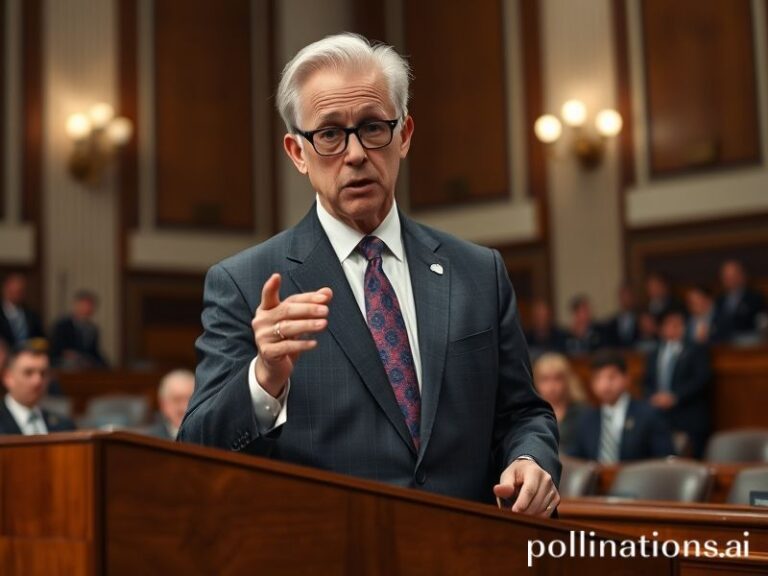martha’s rule
Martha’s Rule: When the World Learns to Listen—Sort Of
By Dave’s Locker International Desk
Geneva—Another week, another acronym. This time it’s “Martha’s Rule,” a protocol named after a 13-year-old London schoolgirl who died of sepsis in 2021 because nobody in the hospital bothered to ask the patient—or her parents—what they thought. In simpler terms, the rule gives patients and families a big red panic button: the legal right to an urgent second opinion if they feel the ward is sleep-walking toward calamity. Britain’s NHS is rolling it out nationally and, like a mildly contagious yawn, the idea is spreading—Canada is piloting it, Australia is “exploring options,” and the WHO has issued one of its trademark “technical guidance” PDFs that will be dutifully downloaded by 47 people worldwide.
Naturally, the rest of us are watching with the detached amusement of spectators who already know the ending. In the Global North, Martha’s Rule is being welcomed as overdue humility—an admission that the infallible white coat is, in fact, stitched together with coffee stains and billing codes. In the Global South, the reaction is more pragmatic: “Second opinion? We’re still trying to get the first one.” Malawi, for instance, has one doctor for every 50,000 citizens; if every worried mother hits the panic button, the system will go into meltdown faster than you can say “supply chain disruption.” Still, the principle resonates. From Lagos barrios to Mumbai slums, people recognize the same universal truth: if you don’t speak up, the machine rolls on like a Soviet parade—impressive, choreographed, and indifferent to individuals.
The cynic’s view is that Martha’s Rule is less a medical breakthrough and more a masterclass in optics. Governments can trumpet “patient empowerment” without actually spending money on extra doctors, ICU beds, or—heaven forbid—decent pay for nurses. Meanwhile, Big Tech senses fresh terrain: Silicon Valley start-ups are already prototyping AI “concierge advocates” that promise to escalate your case “in under three minutes.” The price? A modest monthly subscription plus unlimited access to your medical records, which will absolutely not be monetized by targeted ads for funeral insurance. Cross our hearts.
International human-rights lawyers are salivating too. If the rule hardens into customary law, it could become the next frontier in medical tourism litigation. Picture the scene: a German banker flies to Bangkok for cut-price heart surgery, demands a second opinion via Martha’s hotline, and—when the Thai junior doctor hesitates—files a class-action suit citing “systemic denial of panic-button rights.” The WTO will need a new annex: GATS-MR. Trade delegations will negotiate minimum response times between espresso shots and canapés.
Yet beneath the bureaucratic theater beats a darker irony. The very countries championing Martha’s Rule are the same ones whose austerity programs eviscerated public health for the last decade. Britain shuttered 10 % of its hospital beds since 2010; Canada hemorrhaged nurses to burnout and Arizona; Australia froze Medicare rebates until GPs began charging gap fees that rival a Sydney mortgage. Now, having starved the beast, governments offer patients a whistle. It’s like handing a fire extinguisher to someone standing in the ashes and calling it fire safety reform.
Still, the rule exposes something stubbornly human: the refusal to die quietly. From Syrian refugees stitching wounds in Turkish tents to Brazilian favelas running their own rudimentary triage, people have always improvised second opinions—sometimes from grandmothers, sometimes from Google, occasionally from the neighborhood vet. Martha’s Rule merely codifies what desperate families already do at 3 a.m. when the resident looks twelve and smells of Red Bull. The difference is parchment: a scrap of policy that can be waved like a talisman when the conveyor belt starts moving too fast.
Conclusion
So, will Martha’s Rule save lives? Undoubtedly a few, and every one matters. Will it fix the deeper rot of underfunded, overstretched health systems? About as effectively as a Post-it note fixes a sinking tanker. Yet its real significance may be symbolic: a small, official admission that expertise without humility is just institutional arrogance in a lab coat. The world is watching, half hopeful, half amused, fully aware that the next Martha could be anyone’s child, anywhere. Until then, keep that panic button handy—and maybe learn the local word for “sepsis.” You’ll need it before the translation app loads.







